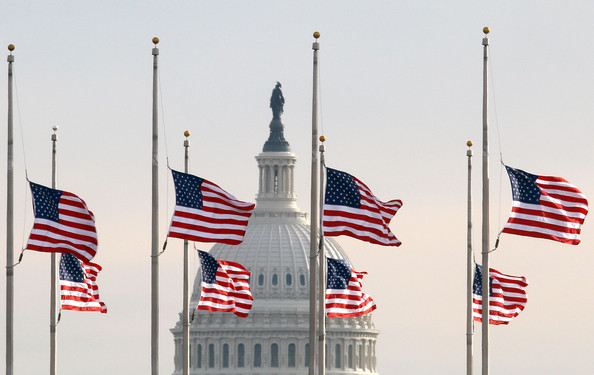Brown & Kulik (1977)
 Brown & Kulik (1977) carried out a classic study of flashbulb memory. You can use this study for the following content in the cognitive approach:
Brown & Kulik (1977) carried out a classic study of flashbulb memory. You can use this study for the following content in the cognitive approach:
Research methods used in the cognitive approach.
One theory of how emotion may affect one cognitive process.
The abstract of the original study is available here.
Brown & Kulik proposed that some events can be remembered as though our mind had photographed them - what they called flashbulb memories. They argued that these memories were caused when the event not only was surprising but was of personal relevance to the life of the individual. They also argued that there must be a biological mechanism that led to the creation of these memories, but the following study did not investigate a biological component.
The aim of their classic 1977 study was to investigate whether surprising and personally significant events can cause flashbulb memories.
The researchers asked 40 black and 40 white American male participants to fill out a questionnaire regarding the death of public figures - such as President John F Kennedy and civil rights leader Martin Luther King Jr - as well as of someone they personally knew. They were asked a series of questions about the event including:
- Where were you when you heard about the event?
- Who was with you when you heard about the event?
- What were you doing when you heard about the event?
- How did you find out about the event?
- How did you feel when you heard about the event? (to indicate level of emotion)
- How important was this event in your life? (to indicate personal relevance)
- How often have you talked about this event? (to indicate rehearsal)
The study was carried out in 1977. President Kennedy was assassinated on November 22, 1963, and Martin Luther King was assassinated on April 4, 1968.
The researchers found that 90% of the participants recalled a significant amount of detail about the day when these events occurred. Most participants had very detailed memories of the death of a loved one. However, there was a difference in their memories of the assassination of public officials, based on the personal relevance of the event to the participant. 75% of black participants had flashbulb memories of the murder of Martin Luther King, compared to 33% of white participants.
The study was one of the first to attempt to empirically test the existence of flashbulb memories. It has led to a large amount of further research.
The study is an interview/questionnaire, which means that it cannot establish a cause and effect relationship between in-group identity (white vs African American) and flashbulb memories.
The procedure could be replicated, allowing us to determine if the results are reliable.
The questionnaire was retrospective in nature - that is, it was self-reported data that relied on the memory of the individual and could not be verified for accuracy by the researchers. Compare this to Neisser & Harsch's prospective study.
The actual level of surprise or emotion at the moment of the historical event cannot be measured or verified.
It is not possible to actually measure the role of rehearsal in the creation of the memories.
When people are questioned about an important national event, they may say what they believe that they are supposed to say - a demand characteristic known as the social desirability effect.
The study shows sampling bias; it is difficult to generalize the findings as only American males were studied. The study had both gender and cultural bias. More recent findings show that collectivistic societies may have lower rates of FBM.

 IB Docs (2) Team
IB Docs (2) Team
